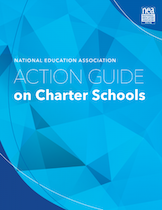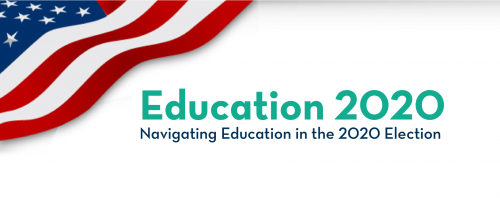There is a good reason the 10th Amendment reads that, “The powers not delegated to the United States by the Constitution, nor prohibited by it to the States, are reserved to the States respectively, or to the people.” Making laws and implementing them is hard enough to do in a government that has national and international interests, security and defense to manage. The ability of the federal government to ensure that the public’s interest is protected and that education is well managed is best left to those closest to our families and communities, though not without a strong partnership—a carrot and a stick—with the federal government. Thus, the federal role should be one of assessment and data gathering, conducting nonpartisan, objective research to support policymaking, and ensuring that the most needy are supported and helped, provided that such support is predicated on success, and not the status quo.

Featured
-
 URGENT ED POLICY CHANGES NEEDED
School districts continue to struggle with critical decisions, union threats about national strikes, and...
URGENT ED POLICY CHANGES NEEDED
School districts continue to struggle with critical decisions, union threats about national strikes, and...
- Government-Run and Regulated Child Care…Here’s Why It Won’t Work FOX & FRIENDS 6.27.2019SENATOR ELIZABETH WARREN INTRODUCES A PLAN FOR GOVERNMENT-RUN AND REGULATED CHILD...
- Education, Workforce and Apprenticeship Tax Credit – Summary October 2017 Education, Workforce and Apprenticeship Tax Credit Act Proposed Bill Summary As the...
- Obama Budget Neglects DC Opportunity Scholarships In one budget request after another, President Obama continues to underfund the D.C. Opportunity...
- Possible Comeback for No Child Left Behind Sen. Lamar Alexander (R-Tenn.), incoming chairman of the Senate committee on education, says his...
- URGENT ACTION NEEDED – Federal Charter School Program MEMORANDUM May 7, 2014 TO: U.S. Charter School Leaders CC: Parents, Advocates, and Friends...
What We Believe
Featured:
Charting a New Course:
The Case for Freedom, Flexibility & Opportunity Through Charter Schools

Must Read:
THE NEA PLAYBOOK
Undermining Charter Opportunites for Kids














